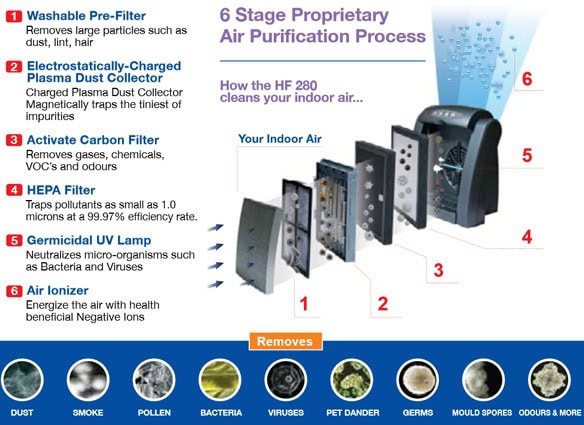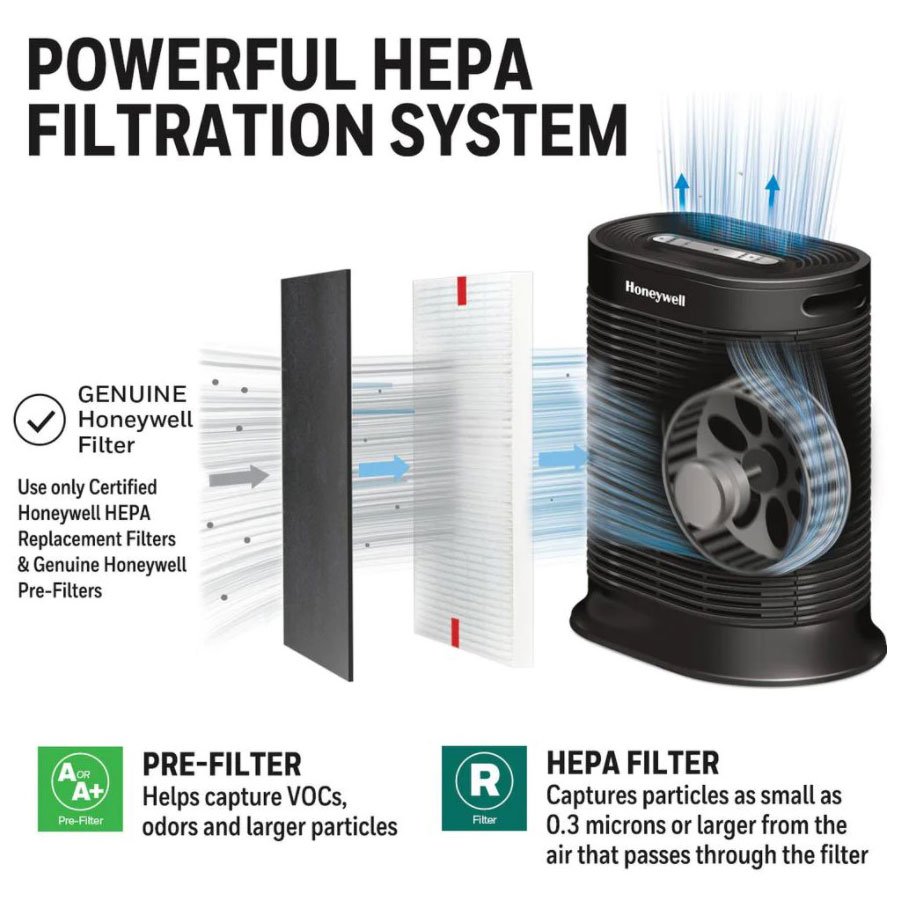In today’s world, maintaining clean and fresh indoor air is becoming increasingly important for our health and well-being. With the rise of air pollution and airborne allergens, it’s essential to understand the different technologies available to improve indoor air quality. Two common solutions are HEPA filters and air purifiers, but what exactly are the differences between these two technologies, and how do they work to clean the air in our homes?

Credit: smartairfilters.com
HEPA Filters
HEPA stands for High Efficiency Particulate Air. HEPA filters are a type of mechanical air filter that works by forcing air through a fine mesh to trap harmful particles such as dust, pollen, pet dander, and even bacteria and viruses. These filters are designed to capture particles as small as 0.3 microns with an efficiency of 99.97%.
One of the key benefits of HEPA filters is their ability to remove a wide range of pollutants from the air, making them an excellent choice for individuals with allergies, asthma, or other respiratory conditions. HEPA filters are commonly used in vacuum cleaners, air purifiers, and HVAC systems to improve indoor air quality.
It’s important to note that while HEPA filters are highly effective at capturing particles, they do not remove odors, gases, or volatile organic compounds (VOCs) from the air. This is where air purifiers come into play.

Credit: www.amazon.com
Air Purifiers
An air purifier is a device that is specifically designed to remove various contaminants from the air, including dust, pollen, pet dander, mold spores, smoke, odors, and volatile organic compounds. While some air purifiers utilize HEPA filters as part of their filtration systems, many models also incorporate additional technologies such as activated carbon filters, UV-C light, and ionizers to address a wider range of air pollutants.
Activated carbon filters are effective at trapping odors, gases, and VOCs, making them an essential component of air purifiers for households with smokers, pets, or individuals sensitive to indoor air pollutants. On the other hand, UV-C light and ionizers work to neutralize bacteria, viruses, and mold spores, providing an added layer of protection against harmful microorganisms.
When choosing an air purifier, it’s important to consider the specific air quality concerns in your home and select a model that offers the most comprehensive filtration for your needs. Some air purifiers are designed for general air purification, while others are tailored to target specific pollutants such as smoke, pet odors, or airborne allergens.
Key Differences
| HEPA Filters | Air Purifiers |
|---|---|
| Effective at capturing particles as small as 0.3 microns with 99.97% efficiency | Utilize a combination of filtration technologies to target a wide range of air pollutants including particles, odors, and microorganisms |
| Do not remove odors, gases, or volatile organic compounds | Can effectively neutralize odors, gases, and VOCs using activated carbon filters |
| Commonly used in vacuum cleaners, air purifiers, and HVAC systems | Available in various models tailored to address specific air quality concerns |
Frequently Asked Questions For What Is The Difference Between Hepa Filter And Air Purifier?
What Is A Hepa Filter And How Does It Work?
A HEPA filter is a high-efficiency particulate air filter that captures microscopic particles, such as dust, pollen, and pet dander, by forcing air through a fine mesh. It helps to improve indoor air quality by trapping harmful pollutants.
What Is An Air Purifier And What Does It Do?
An air purifier is a device that works to improve indoor air quality by removing contaminants from the air, such as smoke, allergens, and volatile organic compounds (VOCs). It helps to create a cleaner and healthier environment for breathing.
What Are The Benefits Of Using A Hepa Filter In An Air Purifier?
Using a HEPA filter in an air purifier ensures that the device can effectively capture and trap tiny particles as small as 0. 3 microns. It provides better protection against allergens, dust mites, mold spores, and other harmful airborne particles, resulting in cleaner and fresher air.
Is An Air Purifier With A Hepa Filter The Best Choice For Allergies?
Yes, an air purifier with a HEPA filter is considered the best choice for allergies. It can effectively remove allergens, such as pollen, pet dander, and mold spores, from the air, providing relief for allergy sufferers. However, it is important to regularly maintain and replace the filter for optimal performance.
Conclusion
In conclusion, while HEPA filters and air purifiers serve the common goal of improving indoor air quality, they address different aspects of air purification. HEPA filters excel at capturing airborne particles, making them essential for allergy and asthma sufferers, while air purifiers offer a more comprehensive approach by addressing a wider range of pollutants including odors, gases, and microorganisms. By understanding the capabilities of these technologies, you can make informed decisions to create a healthier and more comfortable indoor environment for you and your family.
Rakib Sarwar is a Registered Pharmacist and a reputed health and wellness blogger. He has a great interest in Air purifiers.
